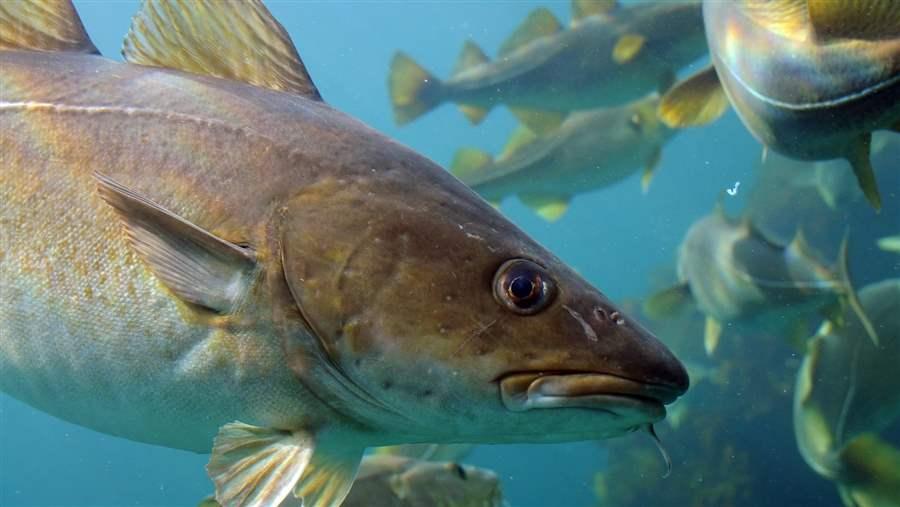New Study Shows That Big Old Fish Can Counteract Overfishing
 Joachim S. Mueller/flickr
Joachim S. Mueller/flickrAtlantic Cod.
A strategy of conserving big, old fish might reduce the impact of severe overfishing, according to a September 2015 study supported by the Lenfest Ocean Program.
Fisheries management is commonly based on computer models that integrate large amounts of data to predict what level of harvest is sustainable. These models generally assume that, pound for pound, all adult fish are reproductively the same; a 10-pound fish produces just as many offspring as two five-pound fish. However, many studies have shown that larger females produce more eggs per unit of body weight and that more of these eggs survive.
To test the potential implications for management, Arnault Le Bris, Ph.D., and colleagues at the Gulf of Maine Research Institute built a model to account for the reproductive turbo-charge of big, old, fat, fertile female fish. Using Atlantic cod as an example, they then tested the benefits of eliminating fishing on the largest individuals compared to the more common strategy of allowing harvest of any adult fish.
The result: protecting the largest cod increased the capacity of the population to withstand overfishing or unfavorable conditions. With more large individuals around, there was a greater capacity to reproduce, so harvested fish were replaced more quickly. However, this fishing strategy did not aid in the recovery after a severe decline from intense overfishing. In that situation, reducing fishing pressure on small and intermediate-size fish leads to faster recovery, since intermediate-size fish gain weight more quickly and thus facilitate a quicker increase in total biomass of fish.
This finding suggests that fishery managers should pay close attention to the distribution of age groups in a population, not just total biomass. This might lead them to protect larger individuals within species whose populations are currently healthy, thus making severe depletion less likely. For stocks that are currently healthy like cod in the Barents Sea or haddock in New England, this could mean limiting fishing in areas frequented by older fish, or in seasons when it’s more common to catch those fish. Managers could also conserve larger fish by making them count more against a fisherman’s quota. For severely depleted populations like Gulf of Maine cod, however, the study found no quick path to recovery. The only solution was to reduce or eliminate fishing until the population rebuilds, which could take a decade or longer.
About the Article
Le Bris, A., A.J. Pershing, C.M. Hernandez, K.E. Mills, G.D Sherwood (2015). Modelling the effects of variation in reproductive traits on fish population resilience. ICES Journal of Marine Science: Journal du Conseil. doi: 10.1093/icesjms/fsv154.

